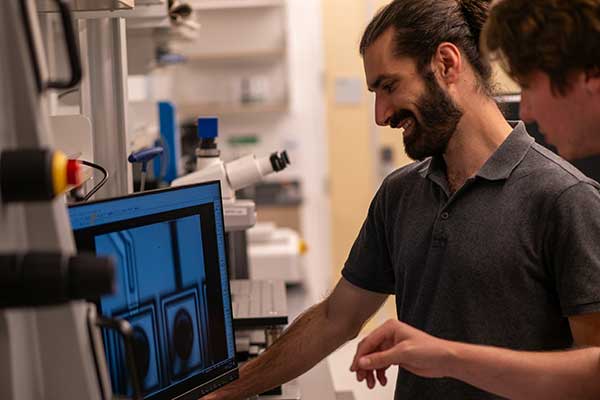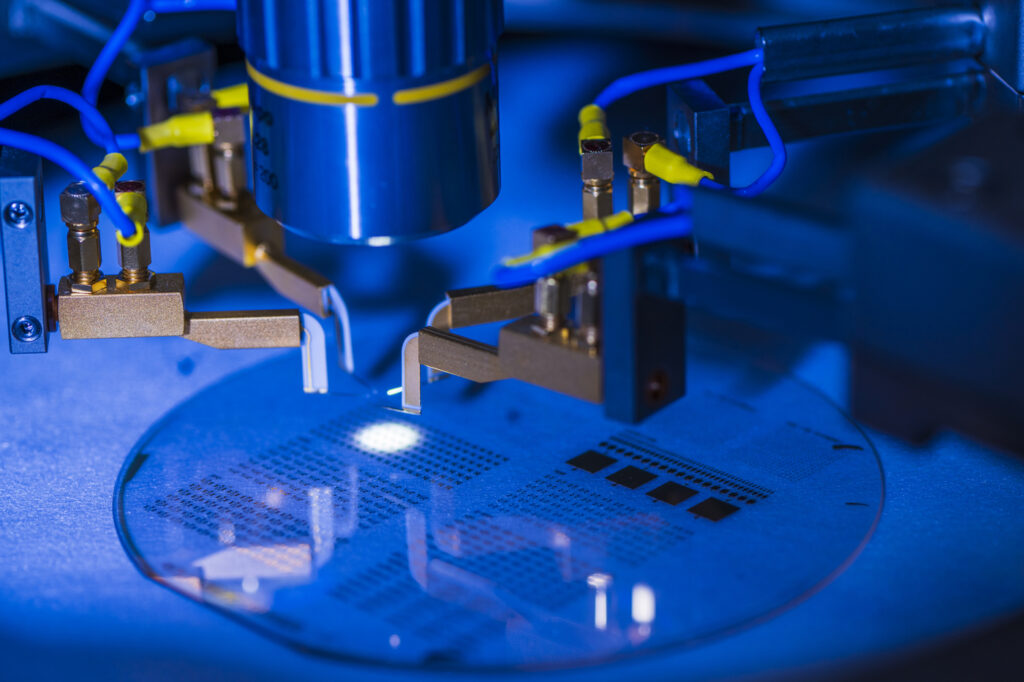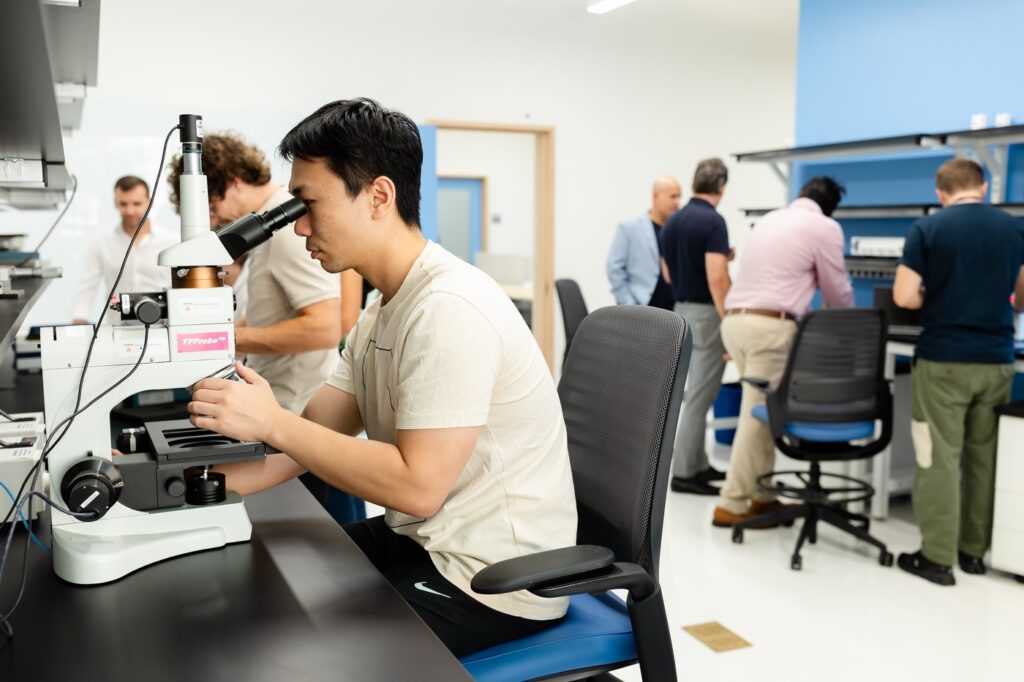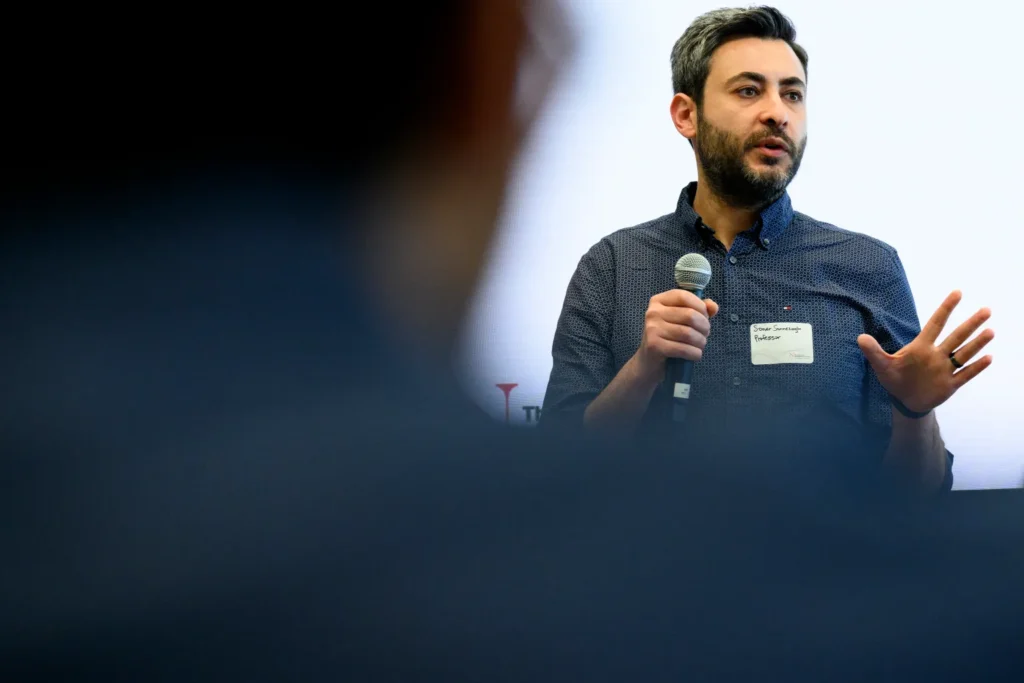News and Events
NanoSI Launches Singapore Research Attachment Program (SRAP) Partnership with Singapore’s Institute for Microelectronics (IME)
February 5, 2026
NanoSI and Singapore’s IME are partnering through A*STAR’s SRAP to fund 6 NanoSI PhD students for 1–2 year research attachments in Singapore. The collaboration targets lead-free piezoelectric MEMS and ultra-high-speed photonic devices, while building long-term international research ties and training future researchers.
Northeastern University Hosts Inaugural Summer School of Vibrometry in Collaboration with Polytec — A Resounding Success!
September 8, 2025
Northeastern University and Polytec hosted the inaugural Summer School of Vibrometry, offering hands-on training and expert instruction in laser Doppler vibrometry. The event brought together academia and industry around advanced vibration measurement techniques.
Northeastern 1st Summer School of Vibrometry
August 20-21, 2025
Northeastern University’s Institute for NanoSystems Innovation hosted a two-day immersive Summer School of Vibrometry featuring technical talks and hands-on training in laser Doppler vibrometry for students, researchers, and professionals.
2025 NanoSI Industry Engagement Board (IEB) Meeting
April 25, 2025
The 2025 NanoSI Industry Engagement Board Meeting brought together industry and academic stakeholders at Northeastern to showcase cutting-edge research and explore collaboration opportunities in chip-level technologies.
US-Singapore Workshop on DeepTech Innovation and Partnerships
April 14—17, 2025
Sponsored by the NSF and partners from the US and Singapore, this workshop brought together government, academic, incubator, and startup stakeholders to strengthen deep-tech innovation partnerships and share best practices.
New Northeastern research hub connects Oakland and Boston to advanced semiconductor research
October 10, 2024
Northeastern University has launched the West Coast Institute for NanoSystems Innovation in Oakland, connecting it with Boston for advanced semiconductor research. This facility will design and test silicon chips vital for technologies like 5G, AI, and nanomedicine. With a collaborative environment for faculty and students, the institute aims to support the U.S. in achieving chip independence.
2024 TRF Topical Workshop
October 7-9, 2024
The 2024 TRF Topical Workshop in Oakland, California convened researchers, engineers, and industry experts to exchange ideas and strategies on hybrid and heterogeneous microsystems technologies across CMOS, MEMS, silicon photonics, and other emerging platforms.
$13M ARPA-H Award for Breakthrough 3D Imaging To Detect Lung Cancer Early
September 18, 2024
NanoSI Assistant Professor Soner Sonmezoglu, has been awarded a $13 million grant from ARPA-H for his project titled “PAIL: PhotoAcoustic Imaging Technology for Diagnostic Lung Assessment.” This initiative aims to develop a groundbreaking optical photoacoustic imaging system, complete with advanced image reconstruction algorithms, to enhance the diagnosis and treatment of cancer and other major diseases.
NanoSI Launch Event and Industrial Advisory Board (IAB) Meeting
April 26, 2024
Northeastern University’s Institute for NanoSystems Innovation held its launch event and Industrial Advisory Board meeting on April 26, 2024, showcasing NanoSI’s research in semiconductors and MEMS and creating opportunities for industry-academic collaboration on chip-level technology advancements.
CONNECT WITH US
Looking to start a conversation? Connect with us at nanosi@northeastern.edu








